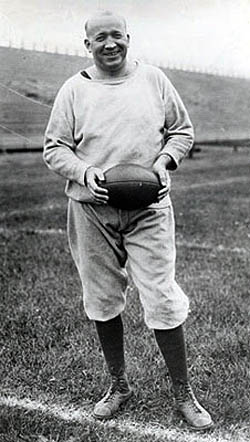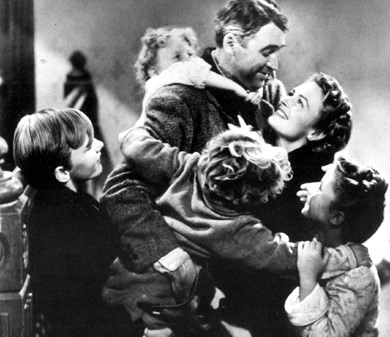
“The first rule about fight club is you don’t talk about fight club.”
Today we’re gonna break the first rule with aplomb. Hey, everyone else does too. Though it came out a decade and a half ago, the film version of Fight Club continues to be a cultural touchstone, especially in discussions about masculinity. Its many quotable lines — like “We’re a generation of men raised by women” — pop up regularly on the social media landscape. So much so, that mentioning Fight Club has become a bit of a cliché, and runs the risk of inducing seen-it-all-before eye rolls rather than reflection.
Yet after reading the book on which the movie is based last month for the AoM Book Club, I was able to see these timeworn insights with fresh eyes, and gain a deeper appreciation for how true, and profound, they really are. Today I’d like to dig into those insights and take a look at what Fight Club can teach us about living manfully (all quotes are from the book):
1. Memento Mori Will Kick Your Butt Into Gear
“This is your life, and it’s ending one minute at a time.”
AoM has referenced the concept of Memento Mori multiple times, including dedicating an article to it, as well as an article on art inspired by the concept. Memento Mori is a Latin phrase meaning “Remember that you will die.” It’s the idea of reflecting on your mortality. Pretty bleak, isn’t it?
Until, that is, you actually think about it and let it move you into action. Even after reading those articles, it wasn’t until I read Fight Club that the concept really hit home. Seeing it in the form of a story truly solidified both its reality and importance.
With each minute that goes by, your life is one minute closer to ending. It’s a little terrifying to think about, and that’s the whole point. So many of us, especially when we’re young, go through life with no concept whatsoever of the fact that we aren’t going to live forever. This is a standard theme of youthful ignorance, and one that can greatly hold us back.
Tyler Durden knows that our knowledge of death is crucial to our growth: “You will die, and until you know this you are useless to me.”
Once we know that someday we’re going to die — that with each passing day our remaining time on Earth is a little bit shorter — we’re more likely to actually do something meaningful with our life.
To the AoM Book Club, I asked the question (echoed in the book), “What will you wish you’d done before you died?” When they thought for a few minutes about the reality of death, they all came up with something they’d do differently, be it an actionable task (travel/explore more) or simply a change in their personality or character (be less timid).
What about you? Will your life change at all when you realize that death is a reality? That every minute it’s one step closer? Make that change now instead of waiting until the Grim Reaper knocks at your door.
2. A Clean Life is Overrated
“I just don’t want to die without a few scars, I say. It’s nothing anymore to have a beautiful stock body. You see those cars that are completely stock cherry, right out of a dealer’s showroom in 1955, I always think, what a waste.”
We live in a very clean world. Disinfectants, laundry detergent, daily showers, and car wax are normal parts our routine. We do everything we can to keep our little worlds neat and tidy and free from scars. We cover holes in the walls of our home, we repair dings in our car as soon as possible, and we even use anti-scar creams on ourselves to hide these ugly and permanent blemishes.
Certainly these things aren’t bad, but what if scars were good for us? What if a little dirt and grime and bruising is beneficial to our well-being?
In recent years, the number of children with food allergies has skyrocketed, with dairy and peanut allergies leading the way. It’s become such a problem that there are many schools where children are no longer allowed to even bring peanut butter and jelly sandwiches on the premises. What could be causing this?
While certainly not conclusive, research is starting to find that our addiction to cleaning — both ourselves and our home — could actually be leading to weaker immune systems, especially in children. In our younger years, it’s crucial for us to be exposed to common pathogens; in layman’s terms that means dirt, dust, grime…germs. It works the same way that vaccines do — a little bit of exposure helps our body fight those things in the future.
The same concept can apply to our adult lives as well. Our narrator notes that he doesn’t want to die without a few scars. To him, a few blemishes are actually desirable. Why would this be?
For one thing, to have scars means that you’ve lived. You haven’t just been in your house eating Cheetos your whole life; you’ve been doing things — taking action, taking risks, and pursuing the hard way in order to live a more satisfying life. Nobody wants to live in a bubble, and being out in the real world means the occasional scrape.
Beyond that, scars make us stronger. In fight club, you get socked in the face, leaving behind a nasty mark that you’ll see in the mirror every day until you die. And it serves as a learning experience and reminder for future fights: keep your hands up, make swift movements…duck and weave! That scar has made you a better fighter.
This concept doesn’t apply only to your body, either, but your mind as well. Psychological scars, although emotionally painful at the time, can serve to make us mentally stronger. If you’ve taken the risk to open a business and it fails after a couple years, you’re going to have your confidence and drive shaken. But if you don’t let that failure crush you, and instead use it as a learning experience, it can act as a springboard for success in a future endeavor.
Now, this doesn’t necessarily mean that you go seeking bodily or psychological harm, but don’t shy away from new experiences that might offer a scar or two. Strive to always be in the arena. Remember, pain is just weakness leaving the body.
3. Keeping Up With the Joneses is Overrated
“And I wasn’t the only slave to my nesting instinct. The people I know who used to sit in the bathroom with pornography, now they sit in the bathroom with their IKEA furniture catalogue… You buy furniture. You tell yourself, this is the last sofa I will ever need in my life. Buy the sofa, then for a couple years you’re satisfied that no matter what goes wrong, at least you’ve got your sofa issue handled. Then the right set of dishes. Then the perfect bed. The drapes. The rug. Then you’re trapped in your lovely nest, and the things you used to own, now they own you.”
In high school and college, I understood the concept of keeping up with the Joneses. But only as a working and home-owning adult do I truly know what it means. I’m perfectly content with my car, my house, my stuff…until I see friends and neighbors with nicer cars, bigger homes, more stuff. It’s a phenomenon I honestly didn’t think I would be subject to. I’m a pretty laid back and content guy as it is, so to see some jealousy creeping in at the unintentional hands of friends and neighbors was a very strange feeling.
But then comes the realization that ultimately, stuff carries a greater burden. A nicer car means more expensive repairs, a bigger home means more square feet to keep clean, more stuff means infinitely more clutter and stress. There are costs for everything — it’s not like quality of life automatically goes up as the number and quality of things you own increases.
As our narrator above notes, you get caught up in having the perfect tidy little life. It even starts with good intentions — you just want a nice sofa. But then you need the matching tables, and matching carpet, and expensive art prints to go with it all. And all of a sudden, as the narrator observes, your stuff ends up owning you versus the other way around.
We see all that new shiny furniture in the IKEA catalogue and we think it will make us happy, but all it does is make us terribly depressed, not to mention sometimes leaving us in financially dire straits. There’s a reason “Thou shall not covet” is one of the ten most important things God tells his people in the Bible. Coveting makes you crazy, and you end up working your 9-5 job in order to simply pay for more stuff that you don’t want or need.
So how do we escape the rampant materialism that grips our society? Our unnamed narrator’s unnamed doorman gives us the surprising and simple answer: “If you don’t know what you want, you end up with a lot you don’t.”
A sense of direction and purpose — knowing what you want — will keep your mind off the Joneses and on your own goals. It will help you achieve a balanced minimalism, where you have the things you need (and that bring you real pleasure) without any of the wallet-pinching, soul-suffocating stuff you don’t. For example, if your aim in life is to become a writer, enjoy your library of research books, and then throw yourself into mastering your craft – you won’t have time to focus on whether you should be playing a game of tit-for-tat with your neighbors.
Take some time to think about what you want the blueprint of your life to look like, then create actionable goals. When you’re focused on crafting your own world, you’ll worry less about other people’s.
4. There Is a Fighter in All of Us
One of my favorite parts of the book is near the end, after the narrator realizes him and Tyler are the same person:
“I love everything about Tyler Durden, his courage and his smarts. His nerve. Tyler is funny and charming and forceful and independent, and men look up to him and expect him to change their world. Tyler is capable and free, and I am not. I’m not Tyler Durden.
‘But you are, Tyler,’ Marla says.”
Our seemingly pale, wimpy, shy narrator has been the cool, tough, fearless Tyler the entire time. He has to be reminded by Marla that he is in fact Tyler Durden. I couldn’t think of a better metaphor for the state of masculinity today if I tried.
There is a confident, strong, resilient, and virile man in each and every one of us. I need to remind myself of this sometimes, and so do you. When we sit in an office all day and come home and eat dinner and sit on our arse and watch TV and go to bed and rinse and repeat, it’s all too easy to lose sight of that fact.
Tyler Durden was funny and charming and independent from the beginning, but the narrator had to realize those characteristics slowly. There is a gap between the ideal man (Tyler, in the novel) and who we really are, and it’s the task of every man to close that gap. Punch by punch, that’s what the narrator did. And so it is with us — becoming a man and becoming a fighter doesn’t happen all at once. Luckily, Brett has already laid out an extensive framework for what that road might look like.
There’s also the mental side of masculinity. Remember, the quote above is near the end of the novel. He’s been through fight club, Project Mayhem, and all the rest, and yet he still doesn’t believe it’s in him to be to be courageous and capable. The first part to becoming a man is believing that you can in fact become a man. And here’s the paradox: you have to do manly things in order to believe you can become manly — you have to do so you can feel. Go split wood. Go exercise for an hour. Go start your novel. The experience you gain from doing will fuel your belief that you can grow, and then you’ll continue to take action that gets you closer to that ideal man.
There is a fighter inside you waiting to burst out as soon as you let it. Don’t squelch him with Candy Crush and Family Guy; enable him by reading more, working out more, and maybe even starting your own fight club.
What did you learn about being a man from the book? Let me know in the comments!







